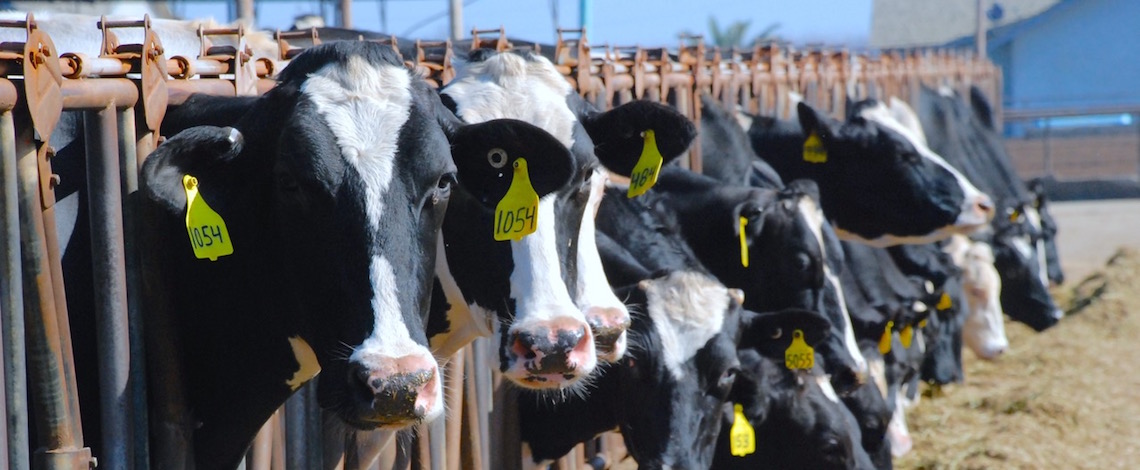
File photo
Written by
While the Trump Administration is touting a win for U.S. dairies in its renegotiated trade deal with Canada, people in the industry and those who follow U.S. trade issues don’t see it as quite so big a win.
At issue are the deals between Canada and Mexico in the U.S. Mexico-Canada Agreement (USMCA), essentially a renegotiated and renamed version of the North American Free Trade Agreement.
The new agreements with Canada finalized last week open up the highly restrictive Canadian market to receive more milk powder, cheese, butter and other dairy goods from the U.S.
That’s certainly good news for dairies here, but Canada is opening its market only slightly more than it did under NAFTA, said Daniel Sumner, a professor of agricultural economics at the University of California, Davis.
Once the agreement is signed, the U.S. will be able to provide 3.6 percent of the dairy products sold tariff-free in Canada, with any more U.S. dairy exported there facing severe tariffs.
Despite the restrictions, last year Canada was the world’s third largest importer of U.S. dairy products, with sales totaling about $636 million.
“Let me be clear, it’s probably worth $50 million bucks” in additional U.S. dairy sales, Sumner said of the renegotiated trade deal,.
He noted that’s a relatively small number compared to the value of milk this country produces annually, which the Progressive Dairyman magazine put at $38.1 billion last year.
As such, “This is a trivially small deal,” Sumner said.
Still, he added, considering how aggressively Canadian lawmakers protect their domestic dairy industry from foreign competition, the U.S. could have ended up with no concessions on the matter.
“If you’re the dairy industry, you say, ‘Thank you very much.’ And if you want to get along with the [U.S. Department of Agriculture], because they make all kinds of other regulations, you don’t complain about it.”
In fact, following the announcement of the USMCA deal coming together, the National Milk Producers Federation, the U.S. Dairy Export Council and the International Dairy Foods Association issued a joint press release thanking Trump Administration negotiators “for fighting hard against Canada’s trade-distorting practices. The groups look forward to reviewing the text of the U.S. -Mexico-Canada Agreement (USMCA), in particular the dairy provisions, to better understand the benefits to U.S. agriculture and dairy.”
Lynn McBride, executive director of the California Dairy Campaign, a Turlock-based nonprofit trade association representing dairy operators, agreed with Sumner that the deal with Canada overall will do little for most dairies nationally, and here in California, “We’re not anticipating much benefit from this.”
In addition to slightly opening its market to U.S. dairy, Canada has agreed to revamp its export rules that in recent years allowed it to export cheap excess milk powder and proteins into the U.S., undercutting the prices of those goods here.
“In short, the new agreement is a tweak, not a major reform. Canadian and U.S. consumers will continue to suffer from highly protectionist dairy policies, with the U.S. continuing to export more dairy products to Canada than it imports from Canada,” states a Brookings Institute report on the matter published this week.
While any benefits to U.S. dairies is welcome, considering the industry has been facing years of crushingly low prices paid for their milk, McBride said there were problems with NAFTA that aren’t being fixed in the new joint agreement with Canada and Mexico.
“Since NAFTA was signed, we have called for a comprehensive rewrite of the agreement, and we don’t consider this to be that,” she said, noting that her organization had wanted a provision requiring the labeling of the countries of origin for beef, so consumers would know if the beef they’re buying comes from the U.S., Mexico or Canada.
Another issue is “transshipment,” essentially products coming into Mexico from other countries and then being shipped to the U.S. as if they’re Mexican-produced good, bypassing tariffs, McBride said.
Then there is the problem of some milk proteins used in various food products being imported into the U.S. virtually tariff free because they weren’t included in the tariffs schedule when NAFTA was in place, she said.
“We would have rather seen that issue addressed rather than trying to gain the limited access to the Canadian market.”
Still, many in the U.S. ag industry likely are happy, as many worried that if President Donald Trump made good on his threat to pull out of NAFTA because it didn’t favor the U.S., tariffs would be activated across the board for U.S. ag goods going into Canada and Mexico.
“What if we didn’t do a Canadian deal? Then you would be worrying about the lettuce Industry. the grape industry, the wine industry, you go down the list” of California goods shipped to Mexico and Canada, Sumner said, noting that the agricultural provisions of USMCA aren’t much different than NAFTA.
“Imagine if dairy would have held up this deal, then California would have been a big loser. So from that perspective, I would call this more a sigh of relief from the rest of agriculture in California, and a little gain here from the dairy industry.”








